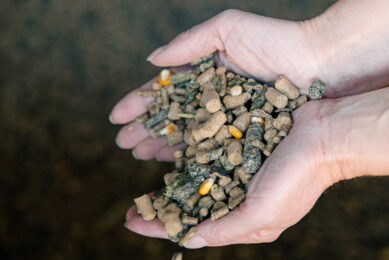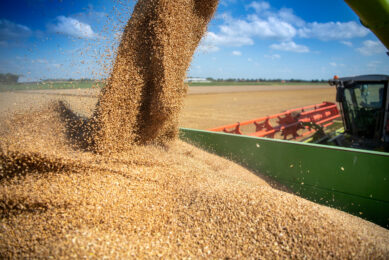The weekly feed business update

New products, acquisitions and a few new mobile apps. All About Feed wraps up the latest updates and new business developments from the global feed industry.
Yara acquires ATC
In line with Yara’s strategy to accelerate its investments in digital farming, Yara completed the acquisition of ATC, which offers farmers and advisors solutions such as Adapt-N and N-Insight to optimise fertiliser use on individual field zones. Combining scientific multi-variable modelling of crops, weather, and field data, ATC’s solutions enable online diagnostic and simulation of farmers’ choices to maximise yield, input cost efficiency, and the sustainability of farming. “ATC will help us implement our farmer-centric strategy and is an important building block in expanding our position in Digital Farming,” said Terje Knutsen, Executive Vice President, Crop Nutrition, Yara. “It is another important contribution to our mission to responsibly feed the world and protect the planet,” Knutsen continues.
Roxell builds new type of feed bins for EU market
Roxell, manufacturer in automatic feeding, drinking, heating and ventilation systems for poultry and pigs, is introducing 2 new types of feed bins, specifically for EU countries. The new types of feed bins comply with European standard EN 1090 for the manufacture of metal structures. The new bins break down into 2 groups. For EU countries, the existing Roxell feed bin series, standard and static (static corresponded to wind zone 4 in Germany), will be replaced by: 1) EC3 feed bin series 26 m/s for areas with an average wind speed of maximum 26 m/s – this type covers the majority of the EU and 2) EC3 feed bin series 30 m/s for areas with an average wind speed of maximum 30 m/s. The existing standard feed bin series will remain available for non-EU countries. The distinguishing features of the new EC3 feed bin series, 26 m/s and 30 m/s, include more robust legs and supports, compliance with the Eurocode 3 standards for strength and stability, and the use of certified raw materials from certified suppliers.
Agrifirm launches new strategy
Netherlands-based animal nutrition company Royal Agrifirm Group has launched a new strategy for a responsible food chain for future generations. Called ‘Better Together’, the strategy aims to step up the company’s focus on increasing applied knowledge and achieving synergy among all its divisions throughout the world. The company continues to strengthen its presence in selected countries with an active acquisition agenda.
Berg + Schmidt optimises feed additive
German animal nutrition company Berg + Schmidt has re-formulated its phospholipid product group, called BergaPur. The re-formulation of the concentrated phospholipid complexes is based on new research results. The natural feed additive has now been designed to improve both biological performance as well as the production process in feeding strategies. The range is a high-quality, readily digestible phospholipid complex in powder form, produced by deoiling crude lecithin.
US universities launch mycotoxin app
The Department of Plant Pathology of the University of Arkansas and the Department of Botany and Plant Pathology of Purdue University have developed a mycotoxin mobile app.
Through a simple and intuitive navigation system, the Mycotoxins app presents important information about different maize ear rot pathogens that cause significant yield losses word wide. In addition, the instructions and tips provided in this application are of valuable knowledge for farmers and corn growers for a proper management of maize infected with mycotoxins. The app also includes tips for storing mouldy grain, ear rot management before and during harvest and scouting and testing for mycotoxins.
ADM invests soybean crushing facility
Archer Daniels Midland Company will be making further investments at its crushing facility in Straubing, to produce non-GMO high-protein soybean meal. Located in southern Germany, the added capability will allow the site to serve ADM’s growing portfolio of soybean meal customers and support local farmers in increasing the region’s soybean output. Earlier this year, ADM expanded its soy processing capabilities at its facility in Spyck. In the last 12 months, it has been working with farmers and industry partners across Europe to create further opportunities to grow and market soybeans in the region.
Alltech’s mycotoxin test now identifies 5 extra mycotoxins
The Alltech 37+® mycotoxin analysis test from Alltech tests for more than 37 types of mycotoxins. When samples are submitted for testing, farmers will now see an additional five mycotoxins that have recently gained attention in scientific research for becoming important to the agricultural industry. These additional mycotoxins and toxicity symptoms are: Citrinin (kidney damage, oxidative stress, gut health challenges, diarrhoea/loose manure), Beauvericin (oxidative stress, antimicrobial activity, contamination of milk/meat, Moniliformin (heart damage, immune suppression, loss of performance). Citreoviridin (Vitamin B1 deficiency, immune suppression, oxidative stress, poor reproductive performance, reduced weight gain) and Cyclopiazonic acid (GIT damage, oxidative stress, immune suppression, loss of performance).











